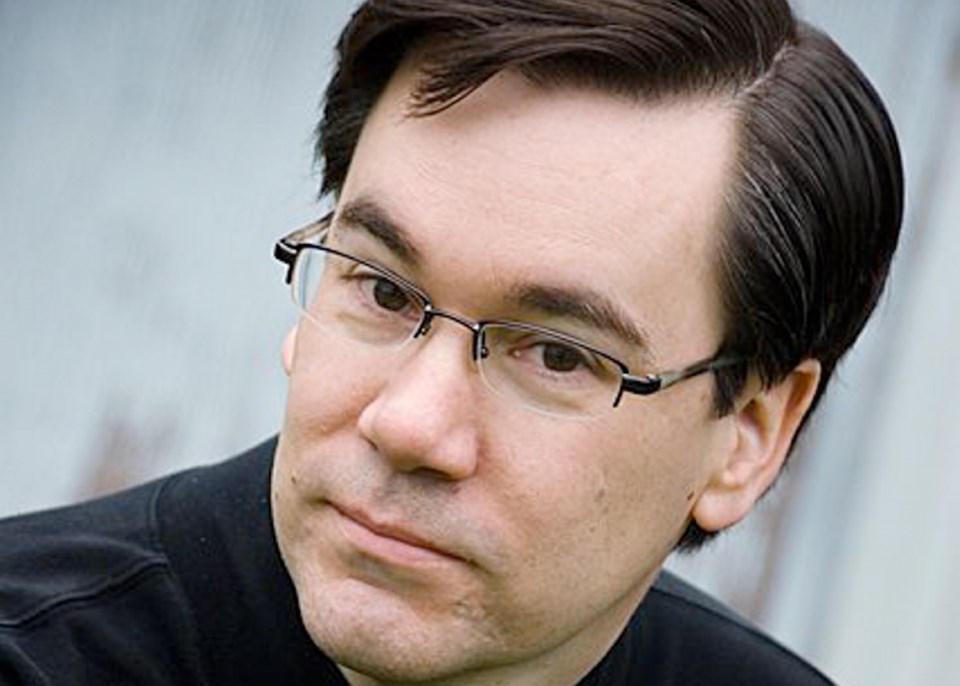On Saturday, the period-instrument duo comprising violinist Paul Luchkow and fortepianist Michael Jarvis will bring to a close their fourth season of recitals (7:30 p.m. on May 25, Chapel of the New Jerusalem, Christ Church Cathedral, $25/$5; pre-concert talk 6:45; christchurchcathedral.bc.ca).
They will not ignore the standard repertoire on this occasion: Their program includes one of Beethoven’s early masterpieces, the Spring Sonata, Op. 24, from 1801, a fresh and melodious work that quite merits its nickname and its considerable popularity.
But this duo especially enjoys shedding light on neglected works of note, and they will offer one on Saturday: a Grand Sonata by Johann Franz Xaver Sterkel (1750-1817), a German who achieved international fame as both a pianist and a composer.
Sterkel contributed prolifically to many genres — symphonies, concertos, piano pieces, sacred vocal music, songs — but was especially renowned for his dozens of sonatas for keyboard with violin or with violin and cello, what we today call violin sonatas and piano trios.
Published in 1786 as his Op. 25, Sterkel’s Grand Sonata is a lyrical and elegant piece with a vein of Italianate warmth, and it unfolds in a leisurely manner. (Its three movements take about 25 minutes to play, a little longer than the four movements of the Spring Sonata.)
It is a work no less appropriate than Beethoven’s for a spring-themed program, and evidence for the duo’s claim that Sterkel’s idiom anticipated Schubert’s.
This piece, incidentally, was not randomly chosen as a mate for the Spring Sonata: Sterkel’s music was an important influence on the young Beethoven, one especially obvious in his earliest piano sonatas and chamber music.
At the age of 21, indeed, Beethoven travelled many miles to hear Sterkel play the piano, and was impressed by his polished, graceful style. And Sterkel, in turn, was amazed to hear the younger man’s playing, especially when he improvised variations on some of Sterkel’s own music.
Also on Saturday, the season will come to an end for two other local ensembles.
In the morning, the Emily Carr String Quartet will bow out with another instalment in its series Music Inside Out, in which a single major work is explored in depth in a pleasantly relaxed setting (refreshments 10:30 a.m., performance 11, Chief and Petty Officer’s Mess, CFB Esquimalt, 1575 Lyall St., $25, students free; emilycarrstringquartet.com).
This time the focus will be on one of Mozart’s greatest, most broadly scaled chamber works, the String Quintet in C Major, K. 515, from 1787.
It is one of four string quintets Mozart composed in the last five years of his life, works more exquisite, ambitious, innovative and technically sophisticated than his quartets, for the richer textures offered by the added viola evidently challenged and inspired him. (The viola was the instrument he himself most liked to play in chamber music.)
On Saturday, pianist and lecturer Robert Holliston will discuss the quintet in the context of Mozart’s life and work, after which it will be performed complete.
The Emily Carr String Quartet will be joined for the occasion by violist Danielle Tsao, 18, who is participating in the quartet’s second annual Young Artist Mentorship Program.
Tsao has already performed with many local ensembles, and last summer, was the featured soloist in the Victoria Symphony’s Splash concert.
And on Saturday evening, the Linden Singers of Victoria, directed by Brian Wismath, will offer a program of both classic and new repertoire (7:30 p.m., Lutheran Church of the Cross, 3787 Cedar Hill Rd., $20, under 25 free; lindensingers.ca).
Joined by the Emily Carr String Quartet and several vocal soloists, the choir will sing familiar works including Mozart’s gorgeous late motet Ave verum corpus and Brahms’s Zigeunerlieder (Gypsy Songs), as well as music by Ola Gjeilo, a Norwegian who lives in the United States and whose choral music has become very popular.
Also on the program is Schubert’s Mass in G Major, a modestly scaled but impressively accomplished work he composed in 1815, when he was just 18.
While not particularly complex or original, the music is deeply expressive, and Schubert brought to bear on it the full resources of his already considerable lyrical command and dramatic instincts.



